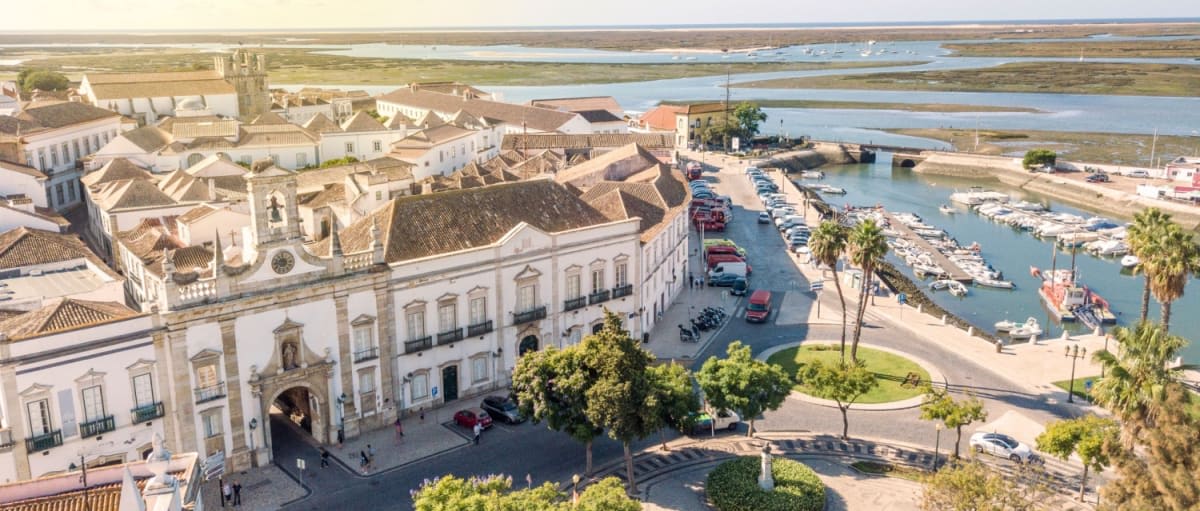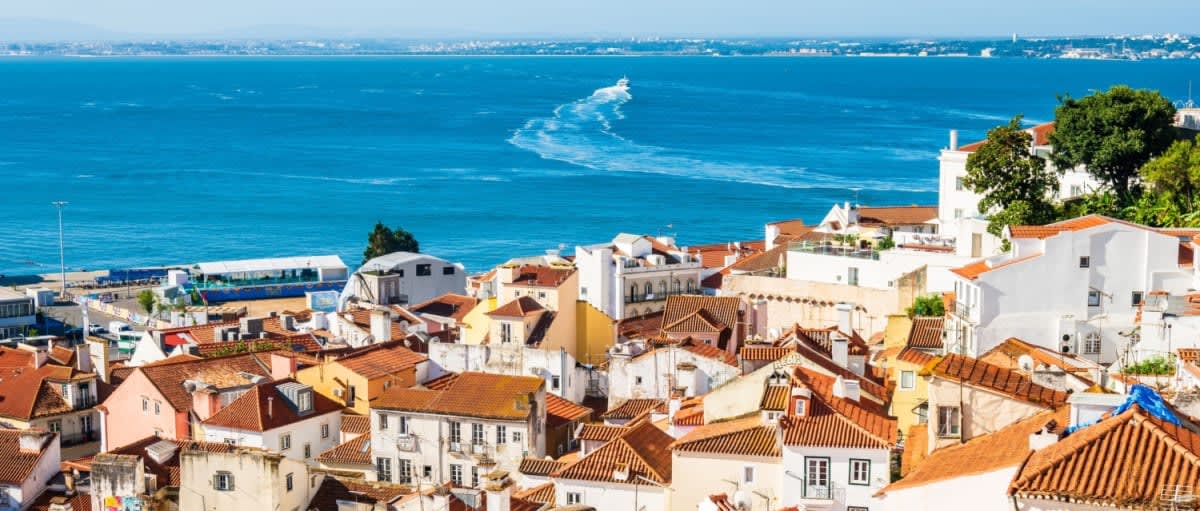Buying property in Portugal is possible for all international buyers, regardless of nationality. The system is transparent, backed by clear legal requirements, and generally investor-friendly. That said, understanding the Portuguese buying process and your duties as a buyer is crucial for a smooth and successful transaction. From obtaining a tax number to signing paperwork with a notary, you should know the legal requirements of buying property in Portugal.
In this updated 2025 deep dive, we’ll outline the legal process of buying property in Portugal, explain the role of key legal professionals and review the taxes and fees involved.
Contents

Who can buy property in Portugal?
Portugal allows anyone, regardless of their residency or citizenship status, to purchase property. Whether you’re from the EU, the UK, the USA or beyond, you don’t need to be a resident or hold a visa to own real estate. However, ownership doesn’t automatically entitle you to live in Portugal. If you wish to stay for longer than 90 days in a 180-day period, you’ll need to apply for a visa or permit – such as the D7, Digital Nomad Visa or Golden Visa (still available in specific cases for non-residential investment).
Non-EU buyers will also need a fiscal representative registered in Portugal and must obtain a NIF (Número de Identificação Fiscal – personal tax number). Without this, it’s impossible to open a bank account or pay taxes related to your property.
For a step-by-step look at the buying process, claim your free copy of our Portugal buying guide:
Download the Portugal Buying Guide
Essential documents required
To purchase property in Portugal, you’ll need to prepare a set of key documents, whether you’re buying outright or via mortgage financing. Here’s what you’ll likely need:
- Valid passport or EU national ID card: This acts as proof of identity, whether you’re present or buying via power of attorney.
- NIF (Portuguese tax number): Essential for all property transactions. You can obtain this via the local tax office or through a solicitor.
- Proof of address: You will need a utility bill or bank statement from your home country for registration purposes.
- Bank account in Portugal: Required to pay property taxes and fees locally.
If you’re applying for a mortgage, lenders will expect further financial documentation such as:
- Bank statements covering at least the past 12 months
- Tax returns from the previous two years
- Proof of consistent monthly income
- Asset and liability breakdown, confirmed by an accountant or adviser
Mortgage requirements vary by lender, but most non-resident buyers are expected to contribute a deposit of 20–30% of the property price.
Legal stages of the property purchase process
The process of buying property in Portugal follows a clearly defined sequence, similar to elsewhere in Europe. It usually comprises three main stages:
1. Making an offer and paying a reservation fee
Once you agree on a purchase price, you’ll often pay a reservation fee of around €5,000. This removes the property from the market and signals commitment. Your solicitor should then begin due diligence, confirming the property’s legal status, ensuring it’s free from debt and confirming ownership.
2. Signing the promissory contract
Next, you draft and sign the contrato de promessa de compra e venda – a legally binding commitment to buy. This outlines the sale price, conditions and timeline. You’ll typically pay a deposit at this point, often 10–30% of the value. Note that this deposit is rarely refundable. If the buyer pulls out, they forfeit it. If the seller withdraws, they are legally obliged to return double the amount.
3. Signing the final deed (Escritura)
This is the formal completion. It takes place in front of a certified notary. Both parties – or their authorised representatives – must be present. After verification of payment and documentation, the deed is signed, and ownership transfers. The notary will also ensure that the required property taxes are paid before final signatures are completed.
4. Land registration and tax office update
After completion, your solicitor will register the property with the Land Registry (Registo Predial) and inform the local tax office. This legally finalises the change in ownership and ensures you’re correctly recorded for annual property taxes.
Understanding Portuguese property laws
While the legal framework for buying property in Portugal is accessible, there are some requirements and responsibilities to note:
Alojamento Local (Short-term rental licence)
If you intend to rent out the property as holiday accommodation, you must apply for a short-term rental licence – known as an Alojamento Local (AL). The application is made at your local Câmara Municipal (town hall). The property will be inspected for safety, hygiene and regulatory compliance.
Note: As of 2025, stricter AL licence rules apply in heavily touristed areas such as Lisbon and Porto, limiting new licences in designated containment zones.
Purchase taxes
There are several charges to budget for when purchasing a property, including:
- IMT (Imposto Municipal sobre Transmissões): This property transfer tax is charged on a sliding scale, based on the property’s purchase price and intended use (main home or second residence). Rates typically range from 0–8% with exemptions for lower-value primary residences.
- Stamp duty (Imposto do Selo): This is set at 0.8% of the property’s value.
Property ownership verification
Before you purchase, your solicitor will confirm that the seller has full ownership rights, that there are no outstanding debts on the property and that the property is correctly registered in public records. You should never rely on verbal assurances alone – legal checks are essential.
The role of a notary in Portugal
Notaries in Portugal are public officials employed by the state to guarantee that property transactions are legally valid. They do not act for the buyer or the seller but rather act impartially to ensure:
- All legal documents are accurate and properly executed
- Property taxes, such as IMT and stamp duty, are paid on time
- All parties are correctly identified and have the capacity to sell or buy
The notary reads out the contract in full at the final signing (Escritura), verifies identification and documentation, and confirms tax payments before legal transfer. Their presence is essential – without a notary, a Portuguese property transaction cannot be completed.
Notaries are regulated professionals and must be registered with the European Directory of Notaries. You may use your own notary or the seller’s, but it’s important to understand their impartial role in the process.
Legal representation and working with a solicitor
A property lawyer or solicitor (advogado) is indispensable for international buyers in Portugal. Unlike the notary, your lawyer works solely on your behalf to protect your interests throughout the purchase.
Your solicitor will:
- Verify the property’s legal status and check for debts or planning issues
- Request and review land registry documents (Caderneta Predial, Certidão Permanente)
- Ensure all seller documentation is valid and that the correct taxes will be applied
- Prepare or review the promissory contract and final deed
- Register the property in your name post-completion
If you can’t be in Portugal to sign documents personally, you can sign a power of attorney (procuração) allowing your lawyer to act on your behalf. This is especially helpful for remote buyers managing the process from abroad. If you plan to have your lawyer act for you, it’s important you learn what overseas buyers need to know about power of attorney.
Make sure your solicitor is registered with the Portuguese Bar Association. Ideally, they should also be fluent in English and well-versed in working with non-resident buyers.
Begin your overseas buying journey
With clear procedures in place and a robust legal framework, buying property in Portugal is a safe and achievable goal for overseas buyers. By working with regulated professionals – a qualified solicitor, independent mortgage broker and reliable estate agent – you can protect your finances and avoid delays.
If you’re ready to begin your purchase, book a free consultation with one of our Portugal property specialists. They’ll help plan your next steps, provide legal introductions and guide you through every stage of the process.
Portugal’s legal system is clear and robust, making it one of the most straightforward places in Europe to buy a home. With the right professional support – including an independent solicitor, notary, and mortgage broker – your purchase can be both safe and stress-free. For more essential reading, explore our articles on how to buy property in Portugal, completing your purchase, and where to buy in Portugal.
Frequently asked questions about buying property legally in Portugal
Yes. Portugal allows buyers of any nationality to purchase property. There are no residency or citizenship requirements for ownership, though you’ll need a tax number (NIF).
The NIF (Número de Identificação Fiscal) is a Portuguese tax number. It’s required for all property transactions, bank accounts and contracts. You can apply through a solicitor or at a tax office.
A notary ensures the legality of the property transfer. They verify identities, read the final deed aloud, confirm taxes are paid, and complete the legal change of ownership.
Yes – an independent solicitor is highly recommended. They work on your behalf to check property ownership, debts, contracts and ensure full legal compliance.
Yes. Common costs include IMT (transfer tax), stamp duty, notary and registration fees, and legal representation – typically amounting to 8–10% of the property price.









